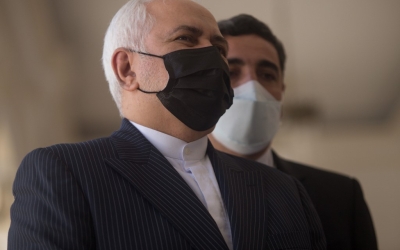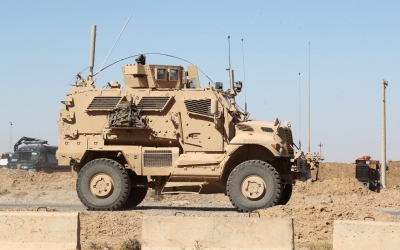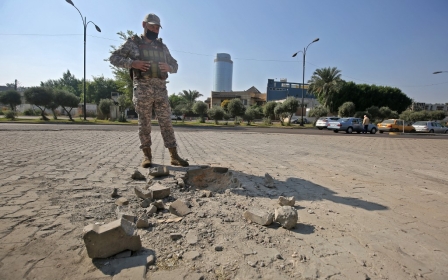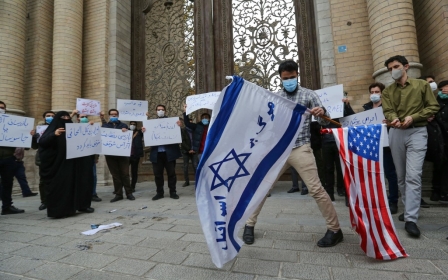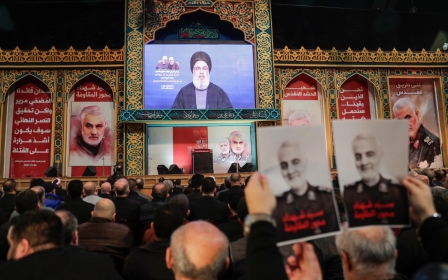US-Iran tensions heat up as both manoeuvre military forces around Gulf
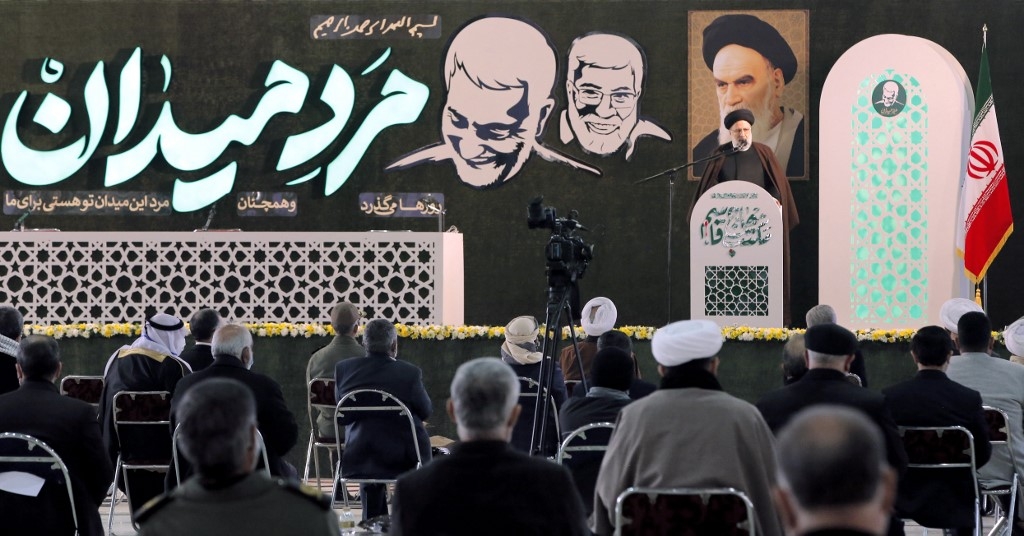
Tensions between the US and Iran have escalated in recent days, with both countries manoeuvring military forces and warning the other against any sort of attack.
With just weeks left of Donald Trump's presidency, the first anniversary of the US assassination of Iran's top general has ramped up the rhetoric coming out of both Tehran and Washington.
New MEE newsletter: Jerusalem Dispatch
Sign up to get the latest insights and analysis on Israel-Palestine, alongside Turkey Unpacked and other MEE newsletters
Iran raised the readiness levels of its maritime forces on Friday.
Whether its move in the Gulf is offensive or defensive remains unclear given recent US actions, but Iran's Quds force commander, Esmail Qaani, warned Washington on Friday that retribution for the 3 January assassination of Qassem Soleimani may come from inside the US.
"By committing this crime, you created a job for all freedom-seeking people across the globe. Be sure that it is possible that some people will be found inside your home to respond to your crime," General Qaani said during a commemoration ceremony at the University of Tehran, as quoted by the Tehran Times.
At the same event, Iran's judiciary chief, Ebrahim Raisi, also sent a warning to the US, saying during a speech that Soleimani's killers will "not be safe on Earth" and that not even Trump would be "immune from justice".
US prepares its forces
The US has been making strategic military moves as well, aimed at warding off any potential retaliatory strikes against its assets in the region in the run-up to the Soleimani anniversary.
From fortifying forces around its embassy in neighbouring Baghdad to flying long-range show-of-force warplane missions near Iranian waters, the US has stressed its manoeuvres are defensive in nature.
"We do not seek conflict, but no one should underestimate our ability to defend our forces or to act decisively in response to any attack," General Frank McKenzie, commander of US Central Command, said in a statement following the US's Wednesday air mission.
Two B-52 bombers carried out a non-stop 30-hour flight from Minot Air Force Base in North Dakota to the Gulf and back.
Earlier this week, the Pentagon said it had intelligence indicating possible Iranian plans to target US assets, but Iran denied the claims, accusing the US of banging war drums as a means to antagonise Iran into taking action.
Foreign Minister Javad Zarif said on Thursday that Washington had wasted billions of dollars on the air mission, and reiterated that while Tehran was not seeking conflict, it would defend itself.
"Instead of fighting Covid in US, @realDonaldTrump & cohorts waste billions to fly B52s & send armadas to OUR region," Zarif tweeted.
"Iran doesn't seek war but will OPENLY & DIRECTLY defend its people, security & vital interests."
Zarif also celebrated Trump's election loss in a New Year's Eve message, saying: "As we end a year of anguish, let us hope for new beginnings in the coming year, ending the insane era of contempt for law and multilateralism - a four-year one that caused so much bloodshed, terror & cruelty."
Later Thursday, Major General Hossein Dehghan, military adviser to Iran's supreme leader, addressed a tweet directly to Trump, warning him "not to turn the New Year into a mourning for Americans".
A rift in the Pentagon?
A split within the defence establishment on whether Iran currently poses a heightened threat seemed to be on display earlier this week when the Pentagon chose to send home the only aircraft carrier operating in the region.
One senior defence official who is directly involved in the intelligence discussions told CNN that there is "not a single piece of corroborating intel" suggesting an attack by Iran may be imminent.
Critics of Trump have accused his administration of looking for a reason to begin military confrontations with Iran in the final weeks of his presidency as a way to sabotage President-elect Joe Biden's plans to re-enter a nuclear deal with Iran.
Biden is set to take over the White House on 20 January and has made clear his intentions to re-negotiate a deal with Tehran, ending four years of Washington's "maximum pressure" campaign against the republic.
Meanwhile, in Iraq, supporters of the Hashed al-Shaabi paramilitary group held a demonstration in Baghdad's western Shoala neighbourhood on Friday to commemorate the assassination of Soleimani as well as the killing of Iraqi commander Abu Mahdi al-Muhandis, who was targeted in the same strike last year.
Demonstrators held posters and chanted demands for the expulsion of US forces from Iraq and revenge for the assassinations, AFP reported.
Middle East Eye delivers independent and unrivalled coverage and analysis of the Middle East, North Africa and beyond. To learn more about republishing this content and the associated fees, please fill out this form. More about MEE can be found here.


